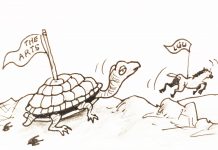The midterm election is over but issues remain in the public mind, chief of them the action by the election commission against candidates who it caught taking liberty at poking sexist statements against their opponents or against the dignity and honor of women. In what the Philippine Commission Women commended as a firm action by the election commission second division in disqualifying Mr. Christian de Guzman Sia as a congressional candidate of the lone district of Pasig City. This disqualification was based on violations of anti-discrimination and fair campaigning guidelines, underscores the importance of upholding gender equality and respectful public discourse during elections.
In its statement following the aforesaid firm action by the election commission, it urged political aspirants to study the provisions of Republic Act 11313 known as the Safe Spaces Act and Republic Act 9710 known as the Magna Carta for Women and other legal provisions, with the invitation reach out to their office for further guidance. On its face, the action is laudable insofar as protecting the rights of women are concerned. But a revisit to the abovementioned laws defines the punishable acts through unwanted remarks directed towards a person, commonly done in the form of wolf-whistling and misogynistic, transphobic, homophobic, and sexist slurs. The provision is general but does not include with specificity political campaigns.
On the other hand, there is the fundamental principle in our constitution, statement unequivocally in section 4 of article 3 better known as the bill of rights which states that “No law shall be passed abridging the freedom of speech, of expression or of the press, or the right of the people peaceably to assemble and petition the government for redress of grievances.” Very clearly, the laws upon which the election commission based its action must not violate the constitution. But the regulatory actions of the election commission and the laws it relied upon are clear curtailments of the fundamental freedom of expression. It acted not just as a regulatory body as it usurped a primarily judicial function when it declared the candidates’ statements as violative of its regulations and the laws cited above.
While the intention may be considered good, it cannot be justified in curtailing the right of the people to speak freely. With these actions, people are reminded of the dark days of martial law under the despotic rule of the conjugal partnership of Ferdinand Sr. and Imelda Marcos when during that time the regime boast that people can speak freely even against the dictatorship. But people shiver in fear and cower to the whims of the dictators with the thought that they have no freedom after speaking. People are well aware that even jokes against the dictatorship could send them to prison without any formal charges, warrant or trial. The supposed violators could find themselves behind bars, the unlucky ones just get lost in the middle of night or sent to the great beyond.
We are confronted these days under the rule of the magical president who is the namesake of his dictator father, with a regulation that is protected by the fundamental provision of the constitution regarding the people’s freedom of expression.
comments to alellema@yahoo.com




